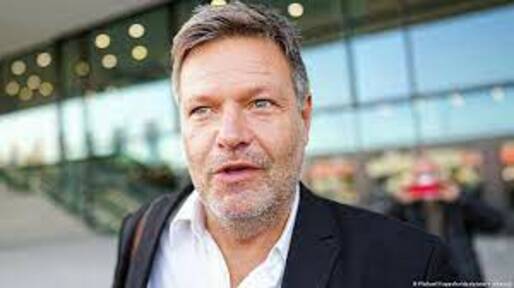On going to the dogs – an interview with German Economy Minister Robert Habeck by Markus Feldenkirchen and Gerald Traufetter in Der Spiegel:
‘DER SPIEGEL: Do you think the personal sacrifices being made by individuals are minor? Habeck: No, they aren’t minor. They are significant. But the sacrifices are distributed extremely unevenly. Those who earn a lot can deal with the rising prices. But I know many people whose money doesn’t last until the end of the month. There are people who were unable to heat all the rooms in their apartment even last winter. And we have to be honest: It’s not over yet. More people will be affected. The high energy prices will only gradually be passed on to consumers. That is why it is so admirable that Germany is so unified. Most people are cognizant of the fact that we as a society must make it through this historic situation.’
(…)
‘DER SPIEGEL: It has been said that consumers, at least, will be protected and that industry will go to the dogs. Is that correct? Habeck: Our goal is that nobody goes to the dogs. To answer your question: That is a European regulation that we implemented in national law several years ago. That regulation was designed for short-term gas stoppages, not for longer-term ones. We are, however, bound by that regulation.’
(…)
‘DER SPIEGEL: How long does it take you to shower? Habeck: My counterpart from the Netherlands recently told me proudly that they had launched a campaign intended to cut the average showering time from 10 minutes to five. I had to laugh. I have never showered for five minutes in my life. I shower quickly.’
(…)
‘Sometimes children need a nice long shower or a wading pool full of warm water. My message is: Go ahead and let your children have fun. We don’t have to completely punish ourselves. But we also can’t act as though everything is just fine.’
(…)
‘Socks and sweaters in the winter are always a good idea. And even if it sounds banal: It is sensible to perform a hydraulic balancing of the heating system now in summer so that the heat is better distributed – doing so saves around 15 percent in energy and costs. And turning the heat down by 1 degree in winter cuts another 6 percent. With 41 million households in the country, this small step amounts to a lot. And we have seen how much solidarity people can show. I was told of a street where residents want every second streetlamp to be turned off at night. Older people live there, who actually have greater security needs, but they still say: We don’t need it.’
(…)
‘There is an instructive example from Britain: There was once a shortage of blood in the blood banks and the government came up with the idea of giving people a bit of money for their blood donations. People responded by saying: What? Our blood is worth so little? And the willingness to donate collapsed completely.’
(…)
‘DER SPIEGEL: How sensible would a speed limit on Germany’s autobahn be at the moment? Habeck: It would make sense in a number of different ways. We would save on fuel and thus on CO2 emissions. Serious accidents would be reduced, and driving would be less stressful. But viewpoints regarding a speed limit were already discussed when this governing coalition was forged. It isn’t currently possible.’
(…)
‘DER SPIEGEL: Does that mean we have to ignore the human rights violations and the conditions faced by the workers preparing for the World Cup? Habeck: Not ignoring something also means taking a closer look. Qatar has made progress. It is, for example, the only Arab country that has introduced a minimum wage. There is no black-and-white when it comes to fossil fuels, only gray. What we are doing, though, is far better than remaining in Putin’s clutches. He wants to force us to accept his murderous ways because we can be blackmailed with energy. There are no white hats at the moment, but there is a black hat. And Putin is wearing it.’
(…)
‘DER SPIEGEL: Are you afraid that you might sacrifice your current popularity if the winter is difficult and full of privations?
Habeck: Do you know what a difficult winter full of privations might mean? That companies will have to cease production and lay off their workers. That supply chains collapse, and people will have to take out loans to pay their heating bill. That people will become poorer and frustration spreads throughout the country. That is my concern. We are facing difficult times.
DER SPIEGEL: And if we get through the winter and you master the energy crisis, will you become the next chancellor candidate for the Green Party?
Habeck: If we get through it with the solidarity that we discussed, then I will be proud of this country.’
Read the article here.
A few takeaways.
The minister as social worker. Let your children have fun, but you yourself should shower no more than 60 seconds.
We are not going to the dogs, but the winter might be difficult, because the German electorate is fairly indifferent to atrocities in Ukraine, but less indifferent to cold feet and energy bills going through the roof. German electorate is on this issue comparable to Dutch, French electorate et cetera.
Qatar is better than Putin, Saudi-Arabia better than Putin. Everything better than Putin. All Saudi-Arabia’s sins will be forgiven soon. In five years we will see what the Middle East looks like.
Putin is wearing a black hat. And we are wearing grey hats. No white hats. Beautiful. Time to watch the movie ‘Black Cat, White Cat’ by Kusturica.
